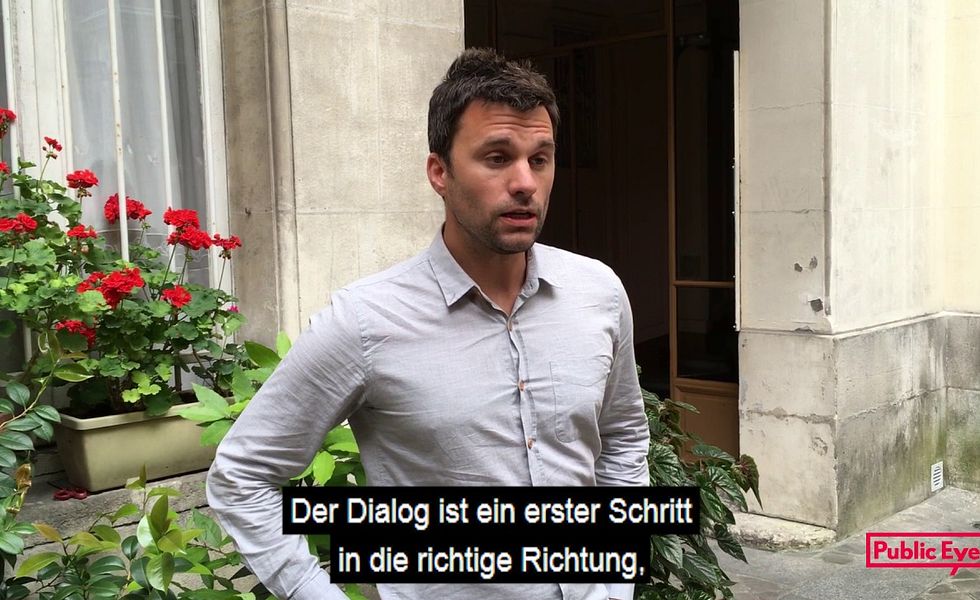Stevia: 260,000 signatures demanding from Coca-Cola to stop its biopiracy
Lausanne/Zurich, June 7, 2017
Coca-Cola is one of the main users of steviol glycosides, the stevia-derived sweetener molecule. Although the soft drink giant does not hesitate to refer to the traditional knowledge of the Guarani people in their ads for Coca-Cola Life, they have thus far refused to discuss any agreement on benefit-sharing with them. Given the public pressure of the 260,000 signatures from all over the world, the American company has invited Public Eye and their partners to participate in a discussion with the International Stevia council (ISC). The meeting will take place in Paris today. This is an important first step towards respecting the Convention on Biological Diversity and the Nagoya Protocol that recognises the rights of Indigenous Peoples to an equitable and just share of the benefits of commercial use of their knowledge.
The Pai Tavytera and Kaiowa Guaranis, who live on the border between Paraguay and Brazil discovered the sweetening properties of stevia and have been using this plant for hundreds of years. Their knowledge is the basis for the current boom in stevia-derived sweeteners. But they are not receiving a single penny for their knowledge. When questioned following the publication in November 2015 about a report that showed the hidden face of stevia, some companies, such as Basle-based Evolva declared that they were prepared to begin negotiations with the Guarani people. On June 2nd, Public Eye took part in an informal dialogue with some of the main companies that are actively involved in this market. The NGOs hope that an initial group of companies who are prepared to negotiate an agreement on benefit-sharing will soon be created, and will include other key firms such as Cargill, Nestlé and even Coca-Cola.
The Guaranis are also organising to defend their rights. They adopted a declaration in which they denounce “the multinationals that make profits based on their knowledge and their biodiversity” and demand that the companies in question join them at the negotiating table. The Guaranis are also developing a community protocol that will define the conditions governing access to their knowledge as well as their demands in terms of benefit-sharing.
For further information contact:
Laurent Gaberell, Biodiversity Expert, +41 21 620 06 15, laurent.gaberell@publiceye.ch
Oliver Classen, Media Director, +41 44 277 79 06, oliver.classen@publiceye.ch
Context
The stevia-derived sweetener market is booming. It represents an estimated 200-300 million dollars and is expected to exceed 550 million dollars by 2020 (Mintel or IMF). Thousands of products such as Coca-Cola Life, Ricola liquorice sweets, Henniez pineapple-peach water are using steviol glycosides, as well as sweeteners such as Steviasweet made by Assugrin. The global market for products that contain stevia-derived sweeteners represents between 8 and 11 billion dollars according to recent estimates.


